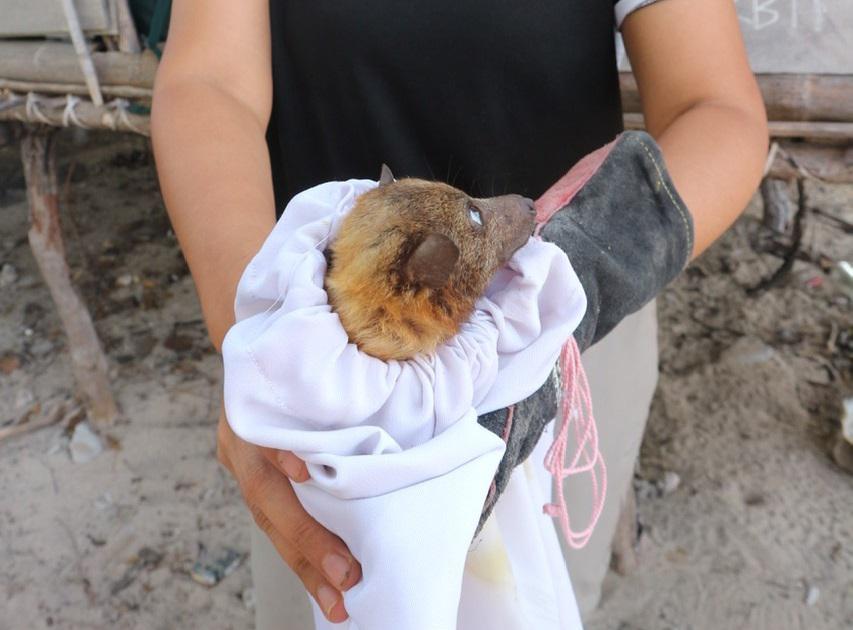Social media videos featuring the project.
Sheherazade Sheherazade
Other projects
21 Apr 2017
Pollination Services of the Flying Foxes on Ecologically and Economically Important Plants in Sulawesi, Indonesia
Flying foxes have been hunted intensely throughout Sulawesi to satiate the demand for bushmeat coming from the north. Protecting flying fox colony locally is the best way to prevent hunters from taking the bats, but more importantly, open opportunity for the village to integrate conservation into their local development program. This project will continue previous programs to protect neglected yet threatened mixed-colony of flying foxes in Central Sulawesi, by conducting 1) flying fox monitoring (first long-term population data in Indonesia), 2) hunting patrol, 3) capacity building of youth community and local fisherman, 4) ecotourism including waste management and greening program.

©Titayanto Pieter.
Despite being the most traded and hunted species in Sulawesi for bushmeat, flying foxes have still received little conservation attention. Flying foxes are important seed dispersers for Sulawesi tropical plants and especially pollinators for durian production, an important commodity for local livelihood in the island. The decline of flying fox population means the loss of their ecosystem services that are pivotal for the ecosystem and human well-being, therefore their conservation is urgently needed in Sulawesi where flying fox diversity is also exceptionally high and unique. This project is the first comprehensive conservation program that integrates it with local development scheme, in this case, is ecotourism with flying fox as the main attraction, and based on sound science.
Our long-term population monitoring (first one in Indonesia) allows us to measure the effectiveness of conservation programs to reduce hunting and increase the flying fox population. Moreover, the project will be run by the community, especially youth and local fisherman group, that have been and will be given a series of capacity building to equip them with necessary skills to run while empowering them to lead the project in long-term. This program will the act as a substantial precedent for the bottom-up approach and integration of conservation with a local development program, as well as the conservation of neglected yet threatened species that are pervasive in Indonesia.
Project Updates
9 Dec 2020
7 Jul 2022
Article featuring the project.
Winner: People's Choice Award for the Southeast Asia Conservation Optimism Award